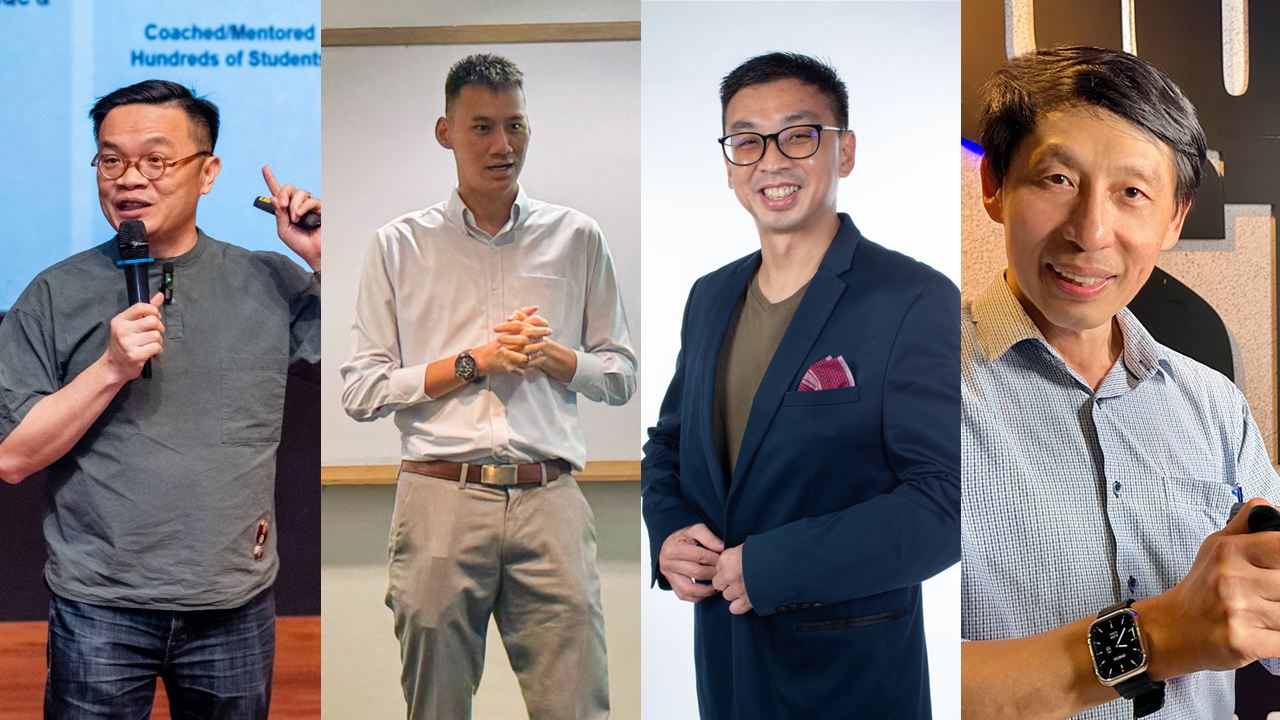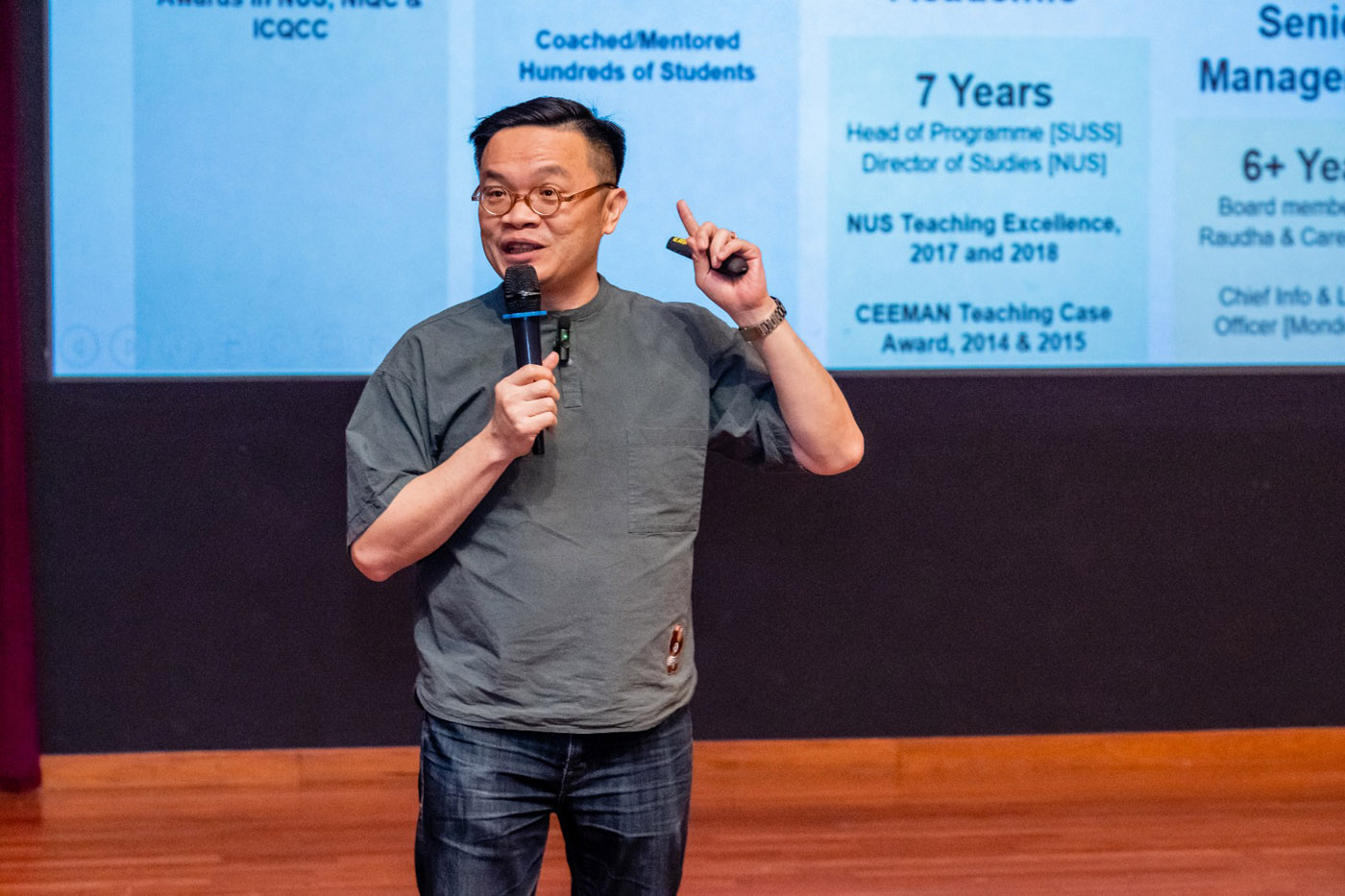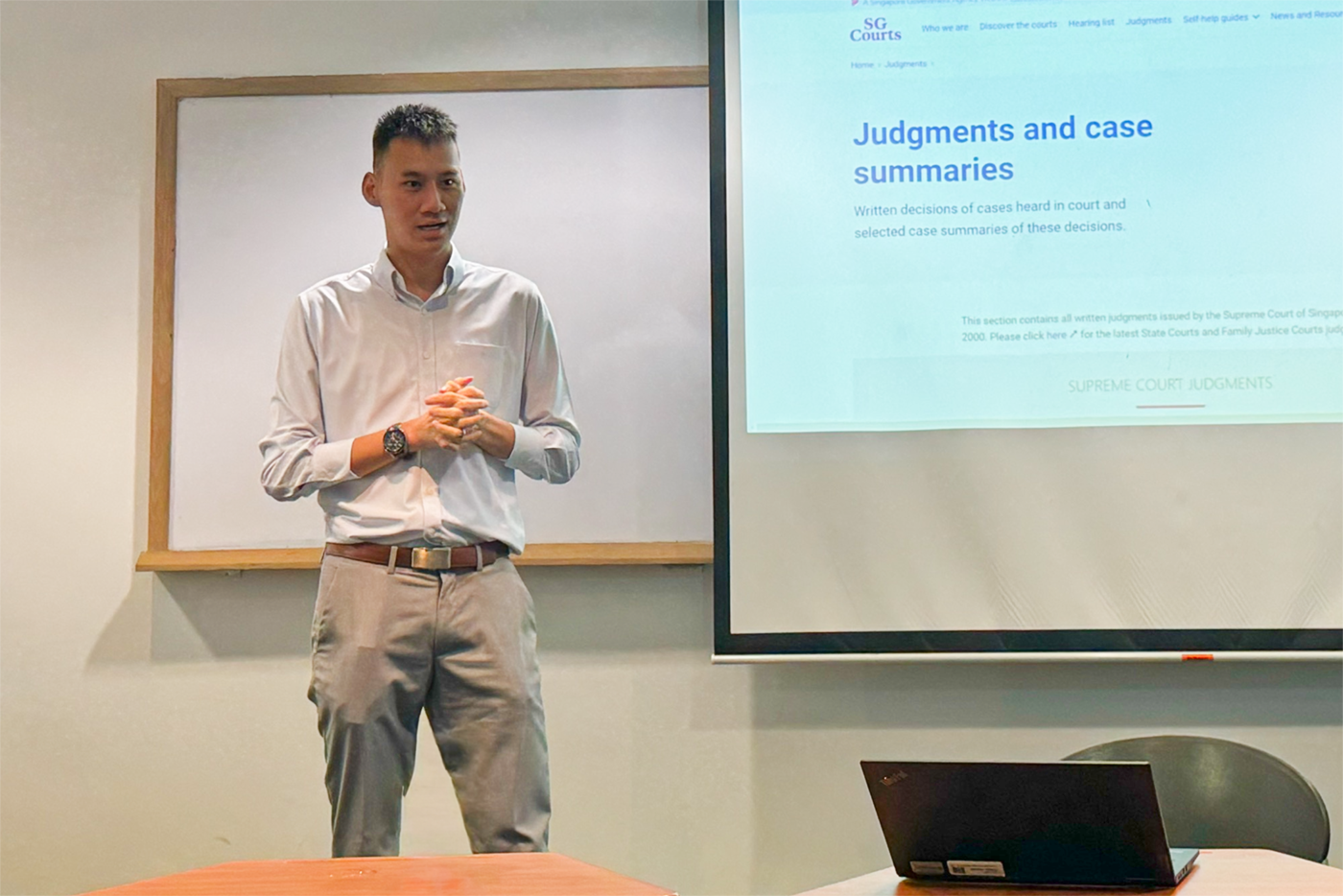Home › Singapore Buzz › Upskill and navigate mid-career changes effectively
Home › Singapore Buzz › Upskill and navigate mid-career changes effectively

In a fast-evolving job market, the ability to pivot and adapt is crucial. With Budget 2024’s new enhancements, it’s the perfect time to future-proof your career.
Reshaped by forces ranging from artificial intelligence (AI) to climate change, the job market of tomorrow will differ from what we have today. This uncertainty can be daunting, but working professionals in Singapore have a valuable resource to help them to stay competitive: The SkillsFuture movement. It promotes lifelong learning through initiatives like SkillsFuture Credit, which can be used for upskilling or reskilling courses.
From May, Singaporeans aged 40 and above will receive a SkillsFuture Credit (Mid-Career) top-up of $4,000. This can be used on 7,000 selected courses, including those from Institutions of Higher Learning or those aligned with specific training needs. Upskilling allows Singaporeans to stay current with technological advancements and industry trends, helping them innovate, excel in their fields or switch careers for better prospects and personal fulfillment.
To explore thriving sectors in Singapore, we speak with four HomeTeamNS volunteers about the in-demand skills in their industries and how mid-career professionals can transition smoothly into new fields.

Name: Dr Jenson Goh
Titles: Chief Executive Officer, Coddiwompling; Associate Professor, Engineering, Singapore Institute of Technology
Tenure in industry: 27 years
Q. What are some exciting developments in the fields of information systems or computer engineering that can offer career opportunities for those interested in joining the sector?
Dr Goh:
The rapid advancement of AI and data science has made the information systems field highly specialised and dynamic. This often means that those without a background in information systems or computer engineering will need to invest significantly in developing their IT skills to pivot effectively into the industry.
That said, there are areas within the field, such as cybersecurity, which are facing a shortage of skilled professionals and offer potential opportunities for career transition. As more systems become interconnected, cybersecurity is increasingly vital, creating entry points for newcomers.
Q: As a result of these developments, what skills or areas of expertise are in demand — or will soon be?
Dr Goh:
With AI and data science proliferation, the complexity of human tasks will increase. Skillsets in unlearning and relearning, managing and leading under high complexity will be crucial for the future workforce. Heavy tech skills, such as AI and deep learning, may be outsourced to countries like China and India, while in Singapore, demand towards core soft skills will increase. Skills such as transdisciplinary thinking, systems thinking, influencing skills and stakeholder management will become highly relevant in the future economy.
Q. What should mid-career professionals wanting to transition into the IT and computer engineering sector look for in a course? What advice would you have for them?
Dr Goh:
Attend relevant seminars, conferences and talks to understand the talent demand, especially interacting with veterans in the industry to appreciate the potential talent gaps within the industry. The Skills Demand for the Future Economy annual reports are valuable resources for identifying future skills needed in the digital economy.
Additionally, find opportunity to develop your transdisciplinary thinking skills that will allow you to blend knowledge from multiple disciplines to solve complex dynamic problems. This will become a much sought after skills by the industry now and into the future. Your existing expertise can also be an advantage when combined with these skills, as it allows you to apply knowledge from different industries to solve problems effectively.

Name: Mr Jason Chua
Title: Lecturer of Law at a local institution
Tenure in industry: Over 6 years
Q. What are some exciting developments in the legal sector that can offer career opportunities for those interested in joining the industry?
Mr Chua: AI and sustainability are exciting areas to look forward to. The focus on sustainability has increased, especially due to climate change. AI tools like ChatGPT has also revolutionised the way law is understood and taught. Today, law research can be done in minutes — compared to the past when we had to go to the library to sieve through law books.
These are huge game-changers for the industry. Knowing the law is no longer enough; staying updated with developments is crucial. Our courts have already moved towards paperless systems and more Zoom hearings.
Q: As a result of these developments, what skills or areas of expertise are in demand — or will soon be?
Mr Chua: Flexibility is key. Law evolves rapidly and staying stagnant means missing out.
For example, I’m currently working with a university to develop an employment law course on digitalisation, and just absorbing the existing literature of digitalisation, I’m amazed at how a traditional area of law like employment law can be so closely tied to new technologies.
Q. What should mid-career professionals wanting to transition into the legal sector look for in a course? What advice would you have for them?
Mr Chua: For those with a first degree, the National University of Singapore and Singapore Management University offer the Juris Doctor or Graduate Law Degree programmes, which are intensive courses that qualify graduates to practice law after passing the Singapore Institute of Legal Education course. For those who would like a taste of law, private institutions offer Diplomas in Law, preparing graduates for careers as legal executives or paralegals. These courses are taught by experienced professionals, giving students a real feel for the law.
At the initial stage of your legal career, explore various areas of law to find your interest. For instance, my internship in international arbitration helped me realise that it wasn’t for me. Most existing skills, such as networking, problem-solving, critical thinking and time management, are transferable. Networking, in particular, is indispensable for bringing in clients and meeting new lawyers.

Name: Dr Lim Kok Hwa
Titles: Associate Professor, Director, Professional Officers Division, Cluster: Food, Chemical and Biotechnology, Singapore Institute of Technology
Tenure in industry: 18 years
Q. What are some exciting developments in the food, chemical and biotechnology sector that can offer career opportunities for those interested in joining the field?
Dr Lim: As with other industries, AI and big data are significantly impacting the sector, along with sustainability. Despite new technologies, traditional skills like regulatory compliance for product, process and workplace safety remain essential.
Professionals from engineering or sales backgrounds, or other sectors, can transition by acquiring industry-specific knowledge.
Q: As a result of these developments, what skills or areas of expertise are in demand — or will soon be?
Dr Lim: Some common misconceptions about biotechnology is that it’s only about lab work, that you need a PhD, or that it’s all about technical skills. In reality, the field encompasses a wide range of roles beyond lab work — such as regulatory affairs, quality control, data analysis, project management, sales and marketing.
While advanced degrees are beneficial for research roles, many positions in biotechnology require bachelor’s or master’s degrees, and relevant experience can be equally valuable. Soft skills like communication, teamwork, problem-solving and project management are crucial alongside technical skills.
Q. What should mid-career professionals wanting to transition into the food, chemical and biotechnology sector look for in a course? What advice would you have for them?
Dr Lim: Understand your career goals and interests, and look for accredited programmes that offer practical, hands-on experience and networking opportunities with industry professionals. Research potential employers to understand their culture and work environment, and network with current and former employees for insights into the company’s operations and values.
Highlight your transferable skills and practical experience. Enhancing soft skills like communication, teamwork, problem-solving, adaptability, leadership and creativity will aid in the transition as well.

Name: Mr Frederick-Sui Tan
Title: Course Director, Content Media Production and Technical Theatre Production, Institute of Technical Education
Tenure in industry: 42 years
Q. What are some exciting developments in the creative visual industry that can offer career opportunities for those interested in joining the field?
Mr Tan: The digitalisation of content creation for online platforms is a major development. The most exciting advancement is Generative AI, which can automate, customise and enhance visual content. While it doesn’t replace artists, it assists in the creation of content materials. Fundamental knowledge and skills are still essential for professional content creators.
Q: As a result of these developments, what skills or areas of expertise are in demand — or will soon be?
Mr Tan: Foundational design and media skills are important. What makes a good design, a good photograph or video that tells a story is the essence of what design and media is about. Skills in content creation, storytelling, brand strategy, media production and post-production are always in demand. With the advancement of digital technology, skills in digital immersive media such as user experience (UX) and user interface (UI) design, data visualisation, augmented reality (AR), virtual reality (VR), mixed reality (MR) and extended reality (XR) are valuable.
Given the rapid pace of technological advancements and industry changes, designers must stay updated on emerging trends, tools and techniques to remain competitive.
Q. What should mid-career professionals wanting to transition into the creative visual sector look for in a course? What advice would you have for them?
Mr Tan: Look for Continuing Education Training (CET) courses from professional training establishments and Institutes of Higher Learning, such as polytechnics and ITEs. They offer Work-Study and Part-Time Diploma Programmes that include assignments and projects to build portfolios, enhancing employability. These institutions also provide networking opportunities and internships.
Research the career track you’re interested in and consider your strengths, interests and the additional skills or qualifications needed. Understand your motivations and assess if you can embrace the uncertainty of the field. Many roles in the creative visual industry are freelance, which might not suit those seeking a stable monthly pay. However, if passionate, this field offers a dynamic journey filled with creativity, collaboration and the opportunity to create informative, educational and entertaining content. It is a unique path and a road less travelled.
Like our stories? Subscribe to our Frontline Digital newsletters now! Simply download the HomeTeamNS Mobile App and update your communication preference to ‘Receive Digital Frontline Magazine’, through the App Settings.

